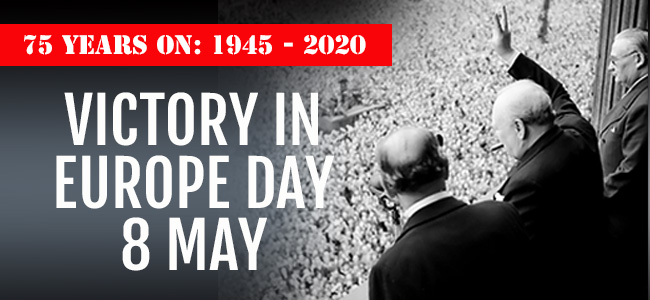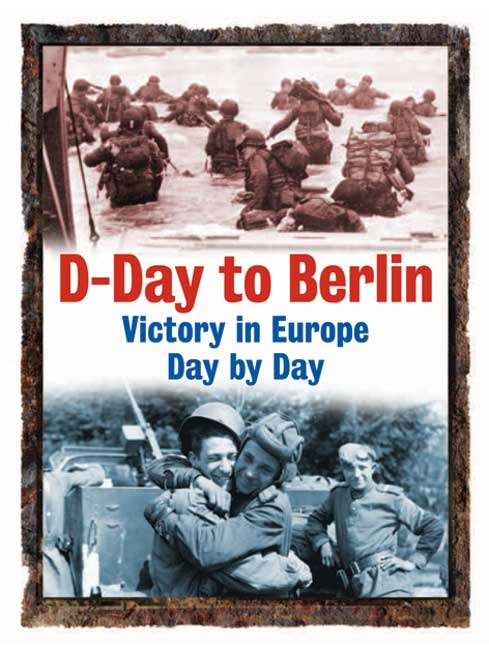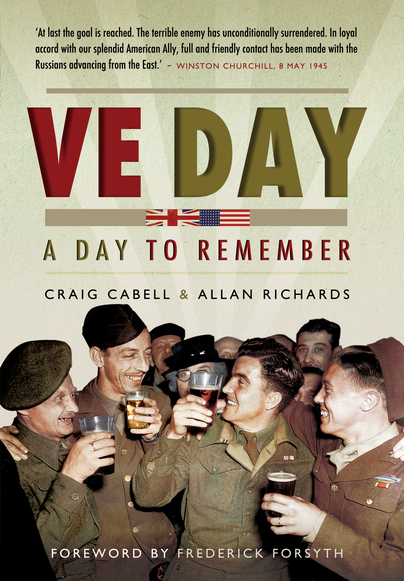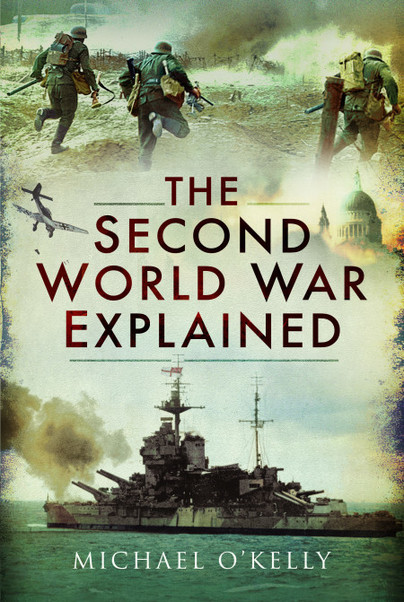75th Anniversary of VE Day
Seventy-five years ago, the formal announcement of the end of the Second World War in Europe on 8 May 1945 was one of the major milestones of the twentieth century and it is entirely appropriate that it should be widely marked. The Allies’ victory over Hitler’s fanatical fascism that had wreaked such havoc in Europe and beyond had never been inevitable. In summer 1940 when Britain and the Empire stood effectively alone, with the all-conquering German forces just across the narrow Channel, our Nation’s future was grim.

The intervening years had seen both disasters and triumphs for Britain and her allies. The Nation’s resolve had been tested at so many levels. Militarily there had been defeats in Norway, Northern France and the Eastern Mediterranean, and serious reversals in North Africa before victory there. U-boats in the Atlantic threatened to bring our Nation to its knees through starvation. Even after the triumph of the Battle of Britain, the Luftwaffe inflicted devastation on our cities, population and industry. But encouraged by an inspirational, albeit controversial, leader with a mixed track-record, the Nation and the entire ‘free world’ fought back against what were at times overwhelming odds.
It could be argued that, ironically, our enemies won the War for us. Hitler’s decision to launch Operation Barbarossa against his ally, the Soviet Union, on 22 June 1941 was a turning point although it would not have seemed so if you had been a Russian. The cost and brutality of the ensuing four-year campaign were unprecedented even by the amoral standards of 20th century warfare.
Secondly, the unprovoked Japanese attack on Pearl Harbour, 7 December 1941, completely changed the course of the War and its likely outcome. Until then, despite Churchill’s persistent efforts to persuade President Roosevelt, many Americans were reluctant to become fully involved again in a distant fray.
Yet, despite these seismic changes, the early months of 1942 were the darkest of all for the Allies. Singapore fell, Rommel ran rampant in Libya and Egypt, Churchill was challenged at home and relations with the Commonwealth fell to their lowest ebb.
For Britain and her allies the turning point was Generals Alexander’s and Montgomery’s autumn 1942 victory at El Alamein and, months later, the expulsion of the Axis forces from North Africa. But the road ahead was a rocky and costly one. Japanese forces threatened India; the Nazis defended Italy every inch of the way; the Alliance was continually pressed by Stalin to invade North-west Europe to relieve Nazi pressure on the Eastern Front.
Even when it came on 6 June 1944, the invasion of Northern Europe was a massive gamble. Thanks to superb planning and execution under outstanding political and military leadership, inspirational courage of our armed forces, and a large measure of luck, it paid off but not before many nail-biting moments. Even with the Soviets closing in from the east and the American- and British-led forces from the West, Hitler refused to admit defeat. Only after his suicide in the Berlin bunker did the Nazis unconditionally surrender on 7 May.
As Churchill pointed out in his address on 8 May 1945, while a brief period of rejoicing was in order, the war was far from over. Ahead lay the grim prospect of invading the Japanese mainland and who knows what the human cost of that would have been? In the event the atomic bombing of Hiroshima and Nagasaki in August, while abhorrent, undoubtedly saved countless allied and, very probably, Japanese lives. Hostilities officially ceased on 15 August 1945 – VJ Day is a day that should be widely celebrated.
In terms of human cost there was, and is, nothing to celebrate. It is conservatively estimated that some 75,000,000 perished worldwide during the War, the majority being civilians. As we were not occupied, the majority of those British who died were in the Armed Forces (estimated at around 380,000 deaths) but significant numbers of civilians died in the blitz and from related causes. The Holocaust will forever remain a deeply shaming scar on the history of the human race.
But what we are surely remembering with deep gratitude on this occasion are the sacrifices made by all who contributed to the victory of good over evil. Too many paid the ultimate price, others incurred lasting physical and mental damage, life changed for everyone. We are paying tribute to all these wonderful people, sadly too few remain with us today.
As we fight our current battle against the insidious, invisible virus, we can do worse than remember with gratitude, and take strength from, the example set by earlier generations over the long years of the Second World War.
Henry Wilson, Pen and Sword Books Ltd
Recommended Reading:
All these books are on special offer this weekend. Click on the titles to purchase any.

VE Day, A Day to Remember – Craig Cabell and Allan Richards

The Second World War Explained – Michael O’Kelly

Escaping with His Life – Sir Nicholas Young

Dunkirk: From Disaster to Deliverance – Patrick Wilson


